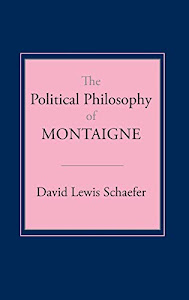
The Political Philosophy of Montaigne
Catégorie: Etudes supérieures, Cuisine et Vins, Romans et littérature
Auteur: Julie Smith, John Fowles
Éditeur: P. D. James, Mark Twain
Publié: 2018-11-06
Écrivain: Joanna Penn
Langue: Hindi, Français, Cornique, Espagnol, Russe
Format: epub, pdf
Auteur: Julie Smith, John Fowles
Éditeur: P. D. James, Mark Twain
Publié: 2018-11-06
Écrivain: Joanna Penn
Langue: Hindi, Français, Cornique, Espagnol, Russe
Format: epub, pdf
TOP 25 QUOTES BY MICHEL DE MONTAIGNE (of 979) | A-Z Quotes - Michel de Montaigne (1856). “The Works of Michael de Montaigne: Comprising His Essays, Letters, and Journey Through Germany and Italy”, p.86
Philosophy of Education: Famous Philosopher's Quotes on - Michel de Montaigne, Philosophy Quotes on Education. I would like to suggest that our minds are swamped by too much study and by too much matter just as plants are swamped by too much water or lamps by too much oil; that our minds, held fast and encumbered by so many diverse preoccupations, may well lose the means of struggling free, remaining bowed and bent under the load; except that it is
Political philosophy - Wikipedia - Political philosophy or political theory is the philosophical study of government, addressing questions about the nature, scope, and legitimacy of public agents and institutions and the relationships between them. Its topics include politics, liberty, justice, property, rights, law, and the enforcement of laws by authority: what they are, if they are needed, what makes a government legitimate
Michel de Montaigne | French writer and philosopher - Michel de Montaigne, in full Michel Eyquem de Montaigne, (born February 28, 1533, Château de Montaigne, near Bordeaux, France—died September 23, 1592, Château de Montaigne), French writer whose Essais established a new literary his Essays he wrote one of the most captivating and intimate self-portraits ever given, on a par with Augustine’s and Rousseau’s
Voluntarism (philosophy) - Wikipedia - Voluntarism is "any metaphysical or psychological system that assigns to the will (Latin: voluntas) a more predominant role than that attributed to the intellect", or equivalently "the doctrine that will is the basic factor, both in the universe and in human conduct". Voluntarism has appeared at various points throughout the history of philosophy, seeing application in the areas of metaphysics
Michel de Montaigne (Stanford Encyclopedia of Philosophy) - · As a humanist, Montaigne conceived of philosophy as morals. In the chapter “On the education of children”, ... The threat of political turmoil imbued both Montaigne and Hobbes’ lives. Whereas Hobbes quoted the ancient saying homo homini lupus, and described the human condition outside the civil state as a war “where every man is enemy to every man”, Montaigne seemed to go …
Montaigne, Michel de | Internet Encyclopedia of Philosophy - The Political Philosophy of Montaigne. Ithaca: Cornell University Press, 1990. Argues that the Essays are more systematic than they initially appear, and that Montaigne’s primary project in writing them was to transform the political and social orders of his time. Shklar, Judith. Ordinary Vices. Cambridge: Harvard University Press, 1984
Pierre Bayle — Wikipédia - modifier - modifier le code - modifier Wikidata Pierre Bayle , né le 18 novembre 1647 au Carla-le-Comte (aujourd'hui Carla-Bayle), près de Pamiers en Pays de Foix (aujourd'hui Ariège), et mort le 28 décembre 1706 à Rotterdam , est un philosophe , écrivain et lexicographe français . Sommaire 1 Biographie 1.1 Nouvelles de la République des Lettres 1.2 Les questions politiques 1.3 Le
existentialism | Definition, History, Characteristics - philosophy. Print print Print Please select which sections you would like to print: Table Of Contents; Cite ... (or nature of Being) interest, and the moral and political interest. That diversity was rooted, at least in part, in the diversity of sources on which existentialism draws. One such source is the subjectivism of the 4th–5th-century theologian St. Augustine, who exhorted others not
Machiavelli, Niccolò | Internet Encyclopedia of Philosophy - The question of nature is particularly important for an understanding of Machiavelli’s political philosophy, as he says that all human actions imitate nature (D 2.3 and 3.9). The following remarks about human nature will thus be serviceable signposts. For if human actions imitate nature, then it is reasonable to believe that Machiavelli’s account of human nature would gesture toward his
[download], [english], [online], [epub], [audiobook], [goodreads], [read], [audible], [free], [kindle], [pdf]












0 komentar:
Posting Komentar
Catatan: Hanya anggota dari blog ini yang dapat mengirim komentar.